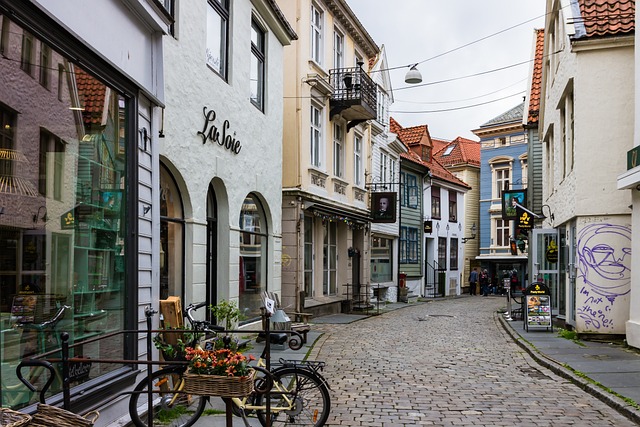Finding Accommodation in Belgium: Renting vs Buying

Belgium, with its charming cities, rich cultural heritage, and central location in Europe, is an attractive destination for expats, students, and professionals alike. Whether you’re moving to Belgium for work, study, or retirement, one of the first decisions you’ll need to make is whether to rent or buy accommodation. Both options have their advantages and disadvantages, depending on your lifestyle, financial situation, and long-term plans. In this article, we’ll explore the pros and cons of renting versus buying property in Belgium, helping you make an informed decision.
Renting Accommodation in Belgium
1. Flexibility and Mobility
One of the biggest advantages of renting is flexibility. If you’re new to Belgium or unsure about where you want to settle long-term, renting allows you to test different neighborhoods, cities, or even regions without committing to a permanent location. This is especially beneficial for expats on short-term contracts or students who may only be staying in the country for a few years.
- Pros :
- Short-term leases are common, giving you the freedom to move when needed.
- Ideal for those who value mobility or are still exploring their options.
- Cons :
- Rent prices can fluctuate, and landlords may increase rent after the lease expires.
- Limited ability to personalize or renovate the space.
2. Cost Considerations
Renting in Belgium can be more affordable upfront compared to buying, as it doesn’t require a large down payment or mortgage commitment. However, rental prices vary significantly depending on the city and neighborhood. For example, Brussels, being the capital and home to many international organizations, tends to have higher rents than smaller cities like Liège or Namur.
- Pros :
- Lower initial costs (no need for a deposit or mortgage approval).
- No responsibility for major repairs or maintenance—these are typically handled by the landlord.
- Cons :
- Rent payments do not build equity; they are recurring expenses.
- Security deposits can still be substantial (usually equivalent to 2-3 months’ rent).
3. Availability and Types of Rental Properties
Belgium offers a wide range of rental properties, from modern apartments in urban centers to cozy houses in rural areas. Many rentals come fully furnished, which is particularly convenient for expats or short-term residents. However, finding a suitable place can be competitive, especially in popular cities like Brussels, Antwerp, and Ghent.
- Tips for Renters :
- Start your search early and use reputable real estate websites like Immoweb or Rent in Belgium.
- Be prepared to provide proof of income and references, as landlords often require these documents.
Buying Accommodation in Belgium
1. Long-Term Investment
Buying property in Belgium is often seen as a long-term investment. While the upfront costs can be high, owning a home allows you to build equity over time. Additionally, Belgian real estate has historically appreciated in value, making it a potentially lucrative option if you plan to sell in the future.
- Pros :
- Stability—you won’t have to worry about lease renewals or rent increases.
- Ability to customize and renovate your property to suit your preferences.
- Potential for rental income if you decide to lease out part of your property.
- Cons :
- High initial costs, including the down payment (typically 10-20% of the property price), registration fees, and notary fees.
- Responsibility for all maintenance and repair costs.
2. Mortgage Options and Financing
Belgium offers various mortgage options for buyers, including fixed-rate and variable-rate loans. Interest rates are relatively low compared to other European countries, making homeownership more accessible. However, securing a mortgage as a non-resident or expat can be challenging, as banks may require proof of stable income and residency status.
- Pros :
- Low-interest rates make monthly payments manageable.
- Tax benefits for homeowners, such as deductions on mortgage interest.
- Cons :
- Strict lending criteria, especially for non-residents.
- Additional costs, such as insurance and property taxes, add to the overall expense.
3. Property Market Trends
The Belgian property market varies by region. Cities like Brussels and Antwerp tend to have higher property prices due to demand, while rural areas offer more affordable options. It’s essential to research the local market and consult with a real estate agent to ensure you’re getting a fair deal.
- Tips for Buyers :
- Work with a bilingual real estate agent familiar with the Belgian market.
- Factor in additional costs, such as notary fees (around 10-15% of the purchase price) and renovation expenses.
Key Factors to Consider
1. Duration of Stay
If you plan to stay in Belgium for less than five years, renting is usually the better option. It avoids the hassle and costs associated with buying and selling property. On the other hand, if you’re planning to settle permanently, buying could save you money in the long run.
2. Budget and Financial Stability
Your financial situation plays a crucial role in deciding between renting and buying. Renting requires less upfront capital but involves ongoing expenses. Buying demands a significant initial investment but offers the potential for long-term savings and asset growth.
3. Lifestyle Preferences
Consider your lifestyle needs. Do you prefer the stability of owning a home, or do you value the flexibility of renting? Are you willing to take on the responsibilities of property ownership, such as repairs and renovations?



